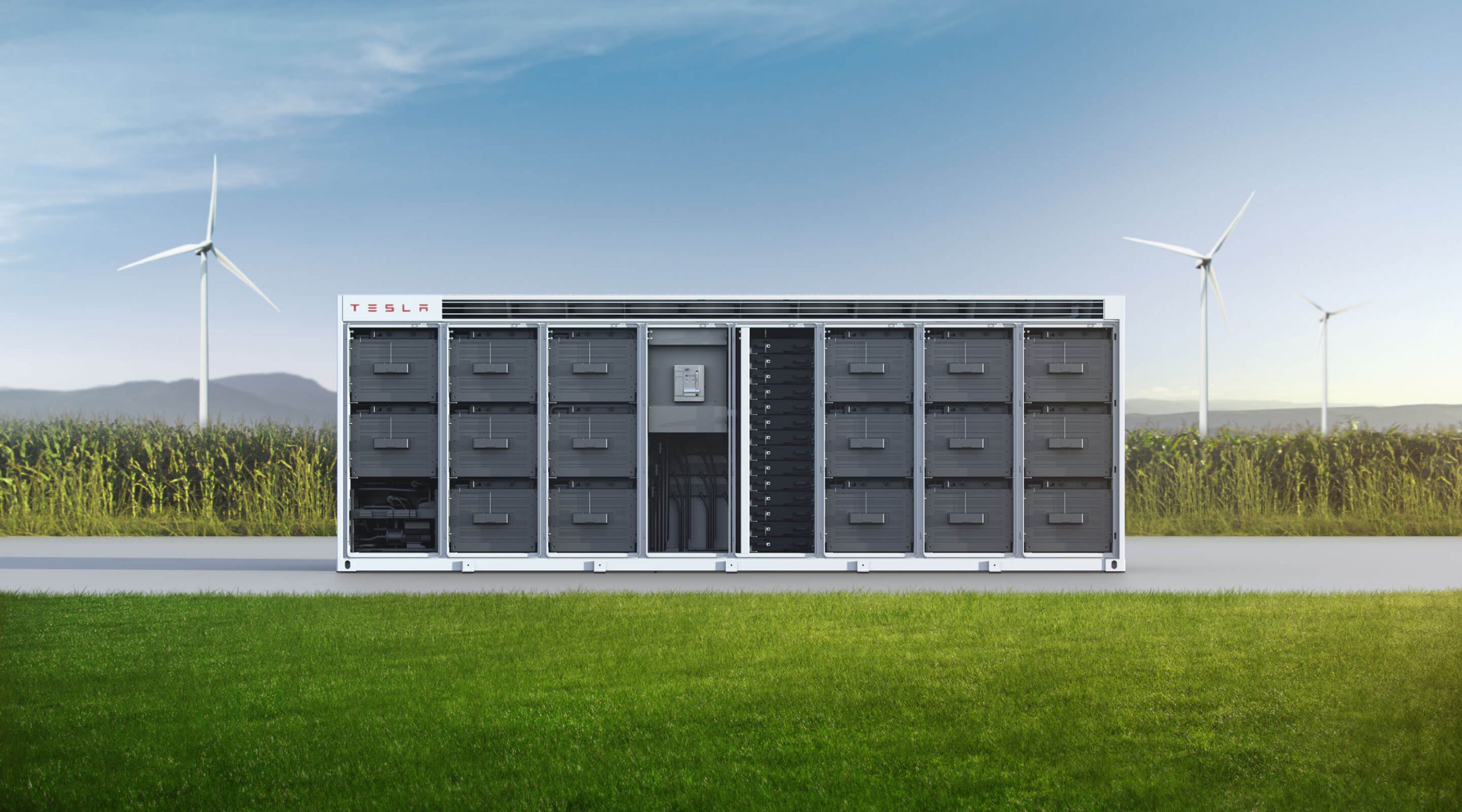
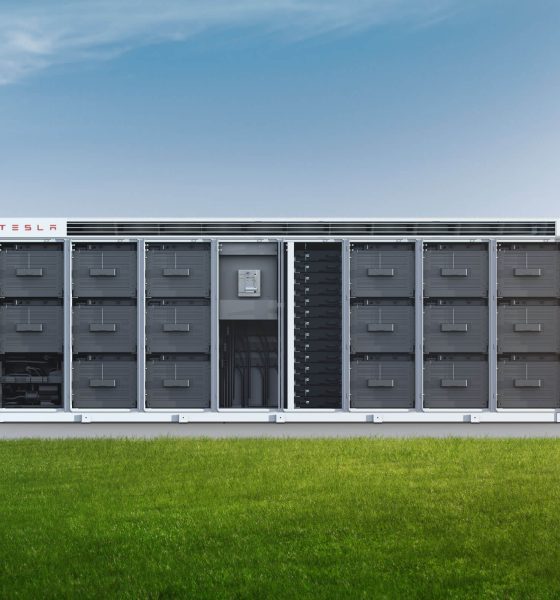
Energy
Tesla’s million mile battery is a golden goose for large-scale energy projects
Tesla Energy is a sleeping giant, rarely considered by analysts covering TSLA stock and largely underrated compared to the company’s electric car business. But something in Tesla’s pipeline may very well be a big catalyst that can fully awaken the behemoth that is the company’s Energy division: the upcoming million-mile battery.
Tesla’s million-mile battery is starting to look very close to production. Patents filed by the company have seemingly teased details about its characteristics. Elon Musk himself has spoken highly about the next-generation batteries, and studies from physicist Jeff Dahn’s team of researchers at Dalhousie University have suggested that such milestones are feasible. Tesla also appears to be gathering the necessary pieces for a massive play on batteries, as hinted at by its acquisition of battery-centric firms like Maxwell and Hibar.
True to its namesake, the million-mile battery is expected to support an electric car for 1 million miles, making them last significantly longer on the roads than comparable petrol-powered vehicles. Such a battery will likely give EVs an even bigger edge compared to their fossil fuel-powered counterparts, especially in terms of practicality. After all, a car that rarely needs maintenance and lasts a million miles is a better buy than one that requires an oil change every 5,000 miles and lasts only about 300,000 miles with extreme care.
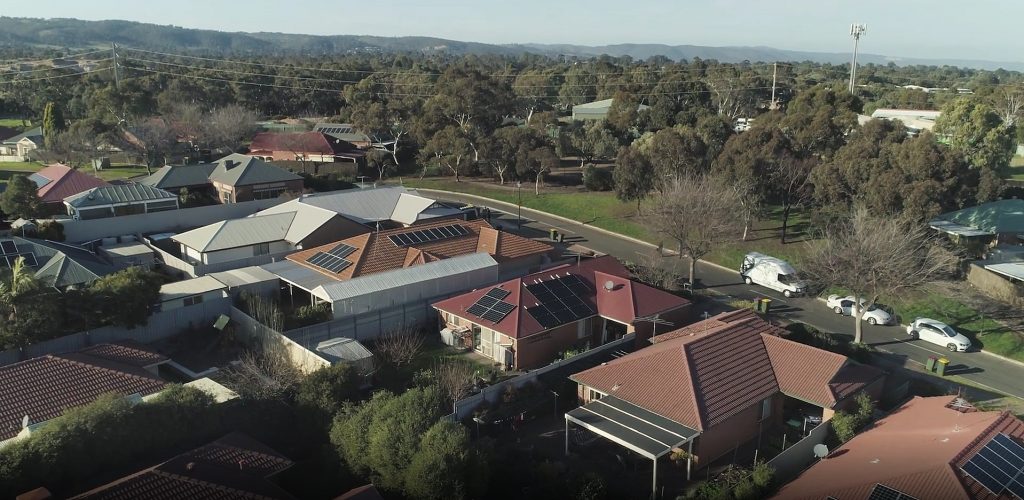
Electric vehicles are not the only ones that will benefit from Tesla’s million-mile battery. Longer lasting batteries will also be extremely valuable for the company’s energy storage products, making them possibly last decades after their initial installation. This has a lot of positive implications for Tesla Energy, especially with regards to its grid-scale battery solutions. If Tesla’s batteries can match or outlast their fossil fuel-powered grid-scale counterparts, the company could very well see a spike in the demand for its battery storage solutions.
A good example of these benefits lies in how Tesla’s battery storage units are used to support communities that have no access to the power grid. With a million-mile battery, Tesla’s energy storage products could last for a very long time, practically ensuring that communities located off the beaten path could get access to sustainable power for decades.
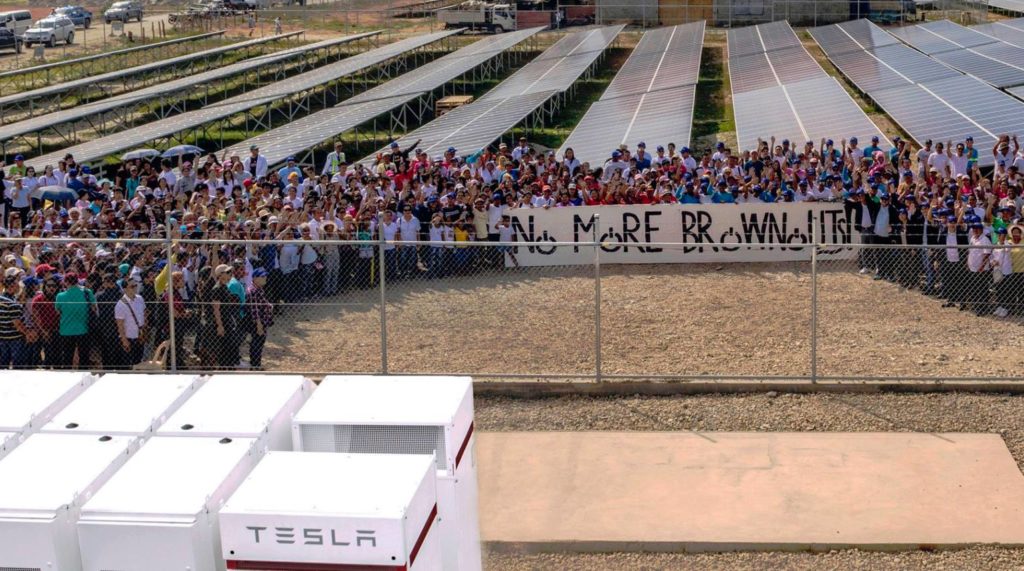
The value of Tesla’s battery storage products, such as its Powerpacks and Powerwalls, is only getting more and more prominent with time. Tesla’s projects in South Australia are proof of this. The Hornsdale Power Reserve has saved residents in the region from intermittent blackouts, and the company’s Powerwalls are now being used as the backbone of a 50,000-strong Virtual Power Plant initiative.
Tesla’s million-mile battery can very well be the key for the Powerwall, Powerpack, and Megapack to dominate in their respective segments. A scenario where a Tesla battery storage system lasts decades is not too farfetched either since batteries used for stationary storage are not subject to the same strains experienced by those used in the company’s high-performance electric cars. Tesla’s batteries are already proven to be quick, cost-effective, and high-quality. With the assurance that they will last for a very long time, there’s a good chance that numerous cities and countries across the globe will adopt them for their energy needs.
When this happens, the sleeping giant that is Tesla Energy will likely be awaked fully. Such a scenario bodes incredibly well for Tesla, especially since investing legends such as Ron Baron have estimated that the company’s Energy business has the potential to be worth $500 billion on its own, on par with Tesla’s electric car division. The million-mile battery could very well be the key to this.

Energy
Tesla Megapack Megafactory in Texas advances with major property sale
Stream Realty Partners announced the sale of Buildings 9 and 10 at the Empire West industrial park, which total 1,655,523 square feet.
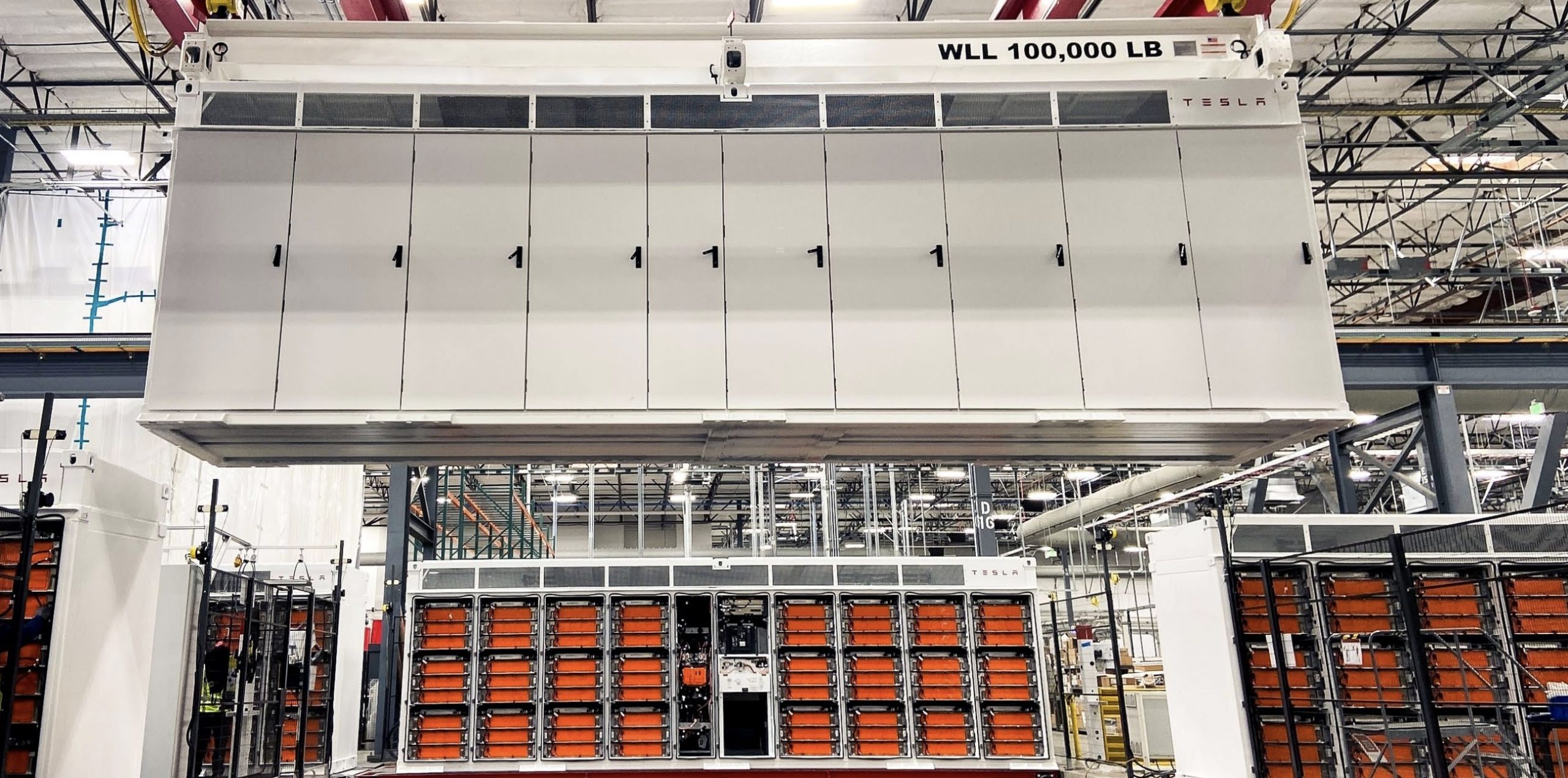
Tesla’s planned Megapack factory in Brookshire, Texas has taken a significant step forward, as two massive industrial buildings fully leased to the company were sold to an institutional investor.
In a press release, Stream Realty Partners announced the sale of Buildings 9 and 10 at the Empire West industrial park, which total 1,655,523 square feet. The properties are 100% leased to Tesla under a long-term agreement and were acquired by BGO on behalf of an institutional investor.
The two facilities, located at 100 Empire Boulevard in Brookshire, Texas, will serve as Tesla’s new Megafactory dedicated to manufacturing Megapack battery systems.
According to local filings previously reported, Tesla plans to invest nearly $200 million into the site. The investment includes approximately $44 million in facility upgrades such as electrical, utility, and HVAC improvements, along with roughly $150 million in manufacturing equipment.
Building 9, spanning roughly 1 million square feet, will function as the primary manufacturing floor where Megapacks are assembled. Building 10, covering approximately 600,000 square feet, will be dedicated to warehousing and logistics operations, supporting storage and distribution of completed battery systems.
Waller County Commissioners have approved a 10-year tax abatement agreement with Tesla, offering up to a 60% property-tax reduction if the company meets hiring and investment targets. Tesla has committed to employing at least 375 people by the end of 2026, increasing to 1,500 by the end of 2028, as noted in an Austin County News Online report.
The Brookshire Megafactory will complement Tesla’s Lathrop Megafactory in California and expand U.S. production capacity for the utility-scale energy storage unit. Megapacks are designed to support grid stabilization and renewable-energy integration, a segment that has become one of Tesla’s fastest-growing businesses.
Energy
Tesla meets Giga New York’s Buffalo job target amid political pressures
Giga New York reported more than 3,460 statewide jobs at the end of 2025, meeting the benchmark tied to its dollar-a-year lease.
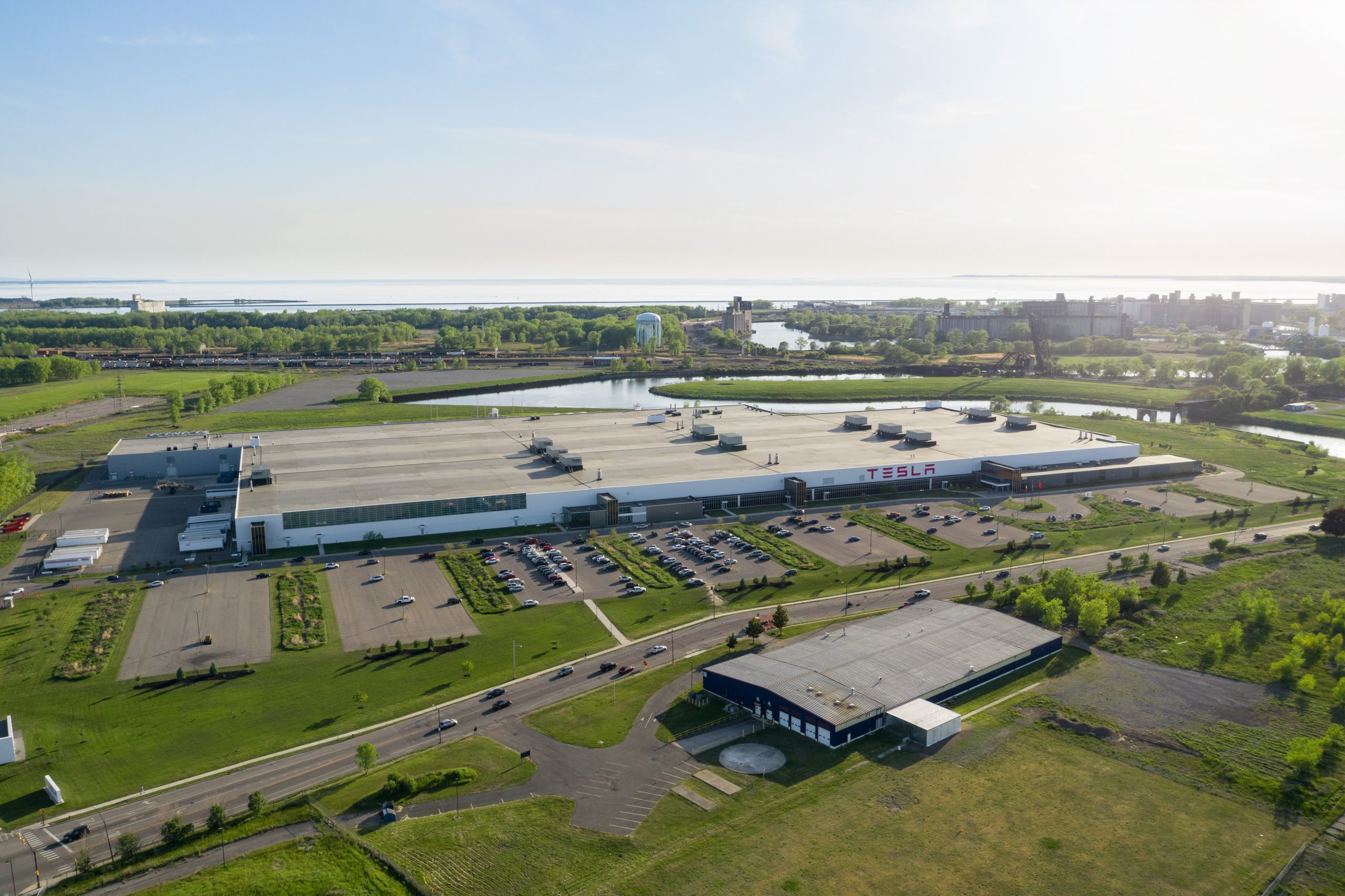
Tesla has surpassed its job commitments at Giga New York in Buffalo, easing pressure from lawmakers who threatened the company with fines, subsidy clawbacks, and dealership license revocations last year.
The company reported more than 3,460 statewide jobs at the end of 2025, meeting the benchmark tied to its dollar-a-year lease at the state-built facility.
As per an employment report reviewed by local media, Tesla employed 2,399 full-time workers at Gigafactory New York and 1,060 additional employees across the state at the end of 2025. Part-time roles pushed the total headcount of Tesla’s New York staff above the 3,460-job target.
The gains stemmed in part from a new Long Island service center, a Buffalo warehouse, and additional showrooms in White Plains and Staten Island. Tesla also said it has invested $350 million in supercomputing infrastructure at the site and has begun manufacturing solar panels.
Empire State Development CEO Hope Knight said the agency was “very happy” with Giga New York’s progress, as noted in a WXXI report. The current lease runs through 2029, and negotiations over updated terms have included potential adjustments to job requirements and future rent payments.
Some lawmakers remain skeptical, however. Assemblymember Pat Burke questioned whether the reported job figures have been fully verified. State Sen. Patricia Fahy has also continued to sponsor legislation that would revoke Tesla’s company-owned dealership licenses in New York. John Kaehny of Reinvent Albany has argued that the project has not delivered the manufacturing impact originally promised as well.
Knight, for her part, maintained that Empire State Development has been making the best of a difficult situation.
“(Empire State Development) has tried to make the best of a very difficult situation. There hasn’t been another use that has come forward that would replace this one, and so to the extent that we’re in this place, the fact that 2,000 families at (Giga New York) are being supported through the activity of this employer. It’s the best that we can have happen,” the CEO noted.
Energy
Tesla launches Cybertruck vehicle-to-grid program in Texas
The initiative was announced by the official Tesla Energy account on social media platform X.
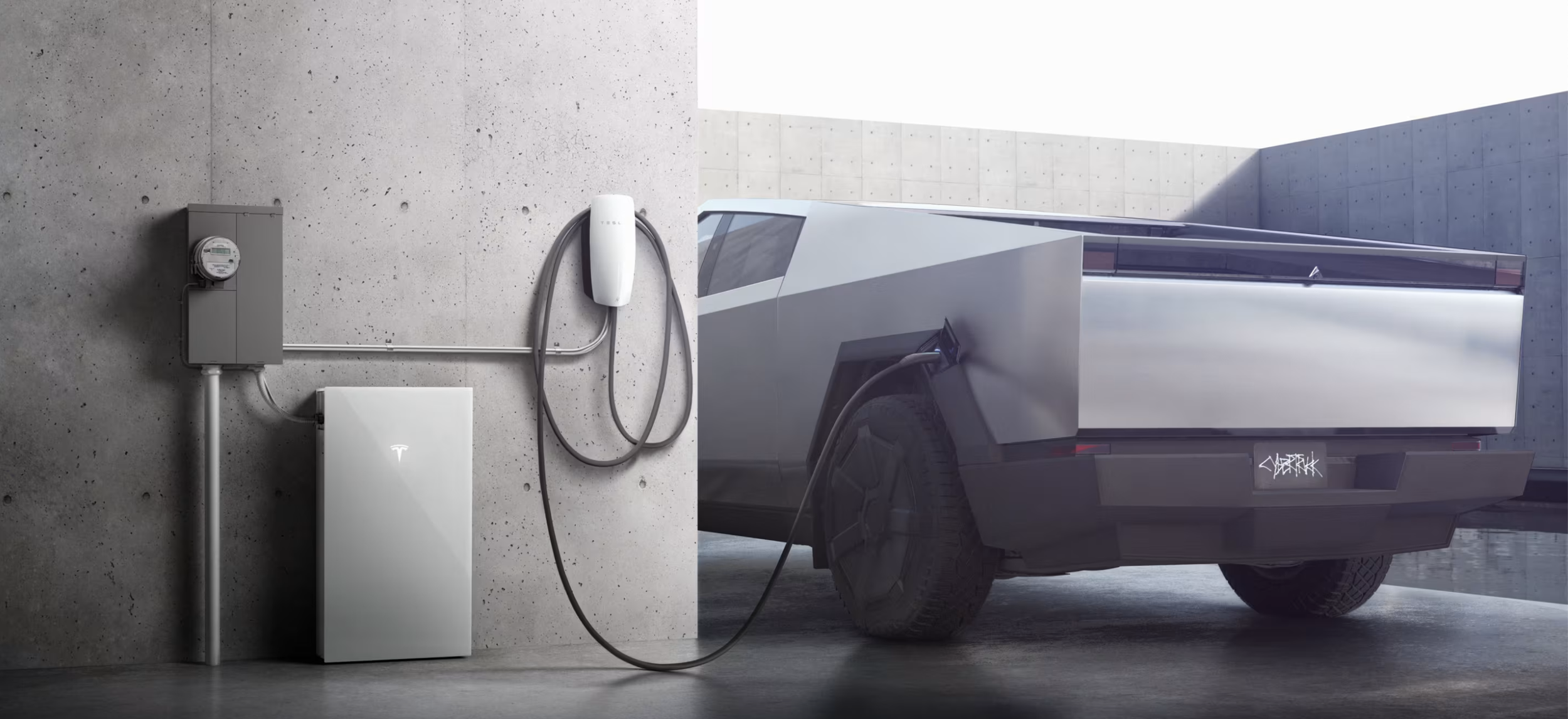
Tesla has launched a vehicle-to-grid (V2G) program in Texas, allowing eligible Cybertruck owners to send energy back to the grid during high-demand events and receive compensation on their utility bills.
The initiative, dubbed Powershare Grid Support, was announced by the official Tesla Energy account on social media platform X.
Texas’ Cybertruck V2G program
In its post on X, Tesla Energy confirmed that vehicle-to-grid functionality is “coming soon,” starting with select Texas markets. Under the new Powershare Grid Support program, owners of the Cybertruck equipped with Powershare home backup hardware can opt in through the Tesla app and participate in short-notice grid stress events.
During these events, the Cybertruck automatically discharges excess energy back to the grid, supporting local utilities such as CenterPoint Energy and Oncor. In return, participants receive compensation in the form of bill credits. Tesla noted that the program is currently invitation-only as part of an early adopter rollout.
The launch builds on the Cybertruck’s existing Powershare capability, which allows the vehicle to provide up to 11.5 kW of power for home backup. Tesla added that the program is expected to expand to California next, with eligibility tied to utilities such as PG&E, SCE, and SDG&E.
Powershare Grid Support
To participate in Texas, Cybertruck owners must live in areas served by CenterPoint Energy or Oncor, have Powershare equipment installed, enroll in the Tesla Electric Drive plan, and opt in through the Tesla app. Once enrolled, vehicles would be able to contribute power during high-demand events, helping stabilize the grid.
Tesla noted that events may occur with little notice, so participants are encouraged to keep their Cybertrucks plugged in when at home and to manage their discharge limits based on personal needs. Compensation varies depending on the electricity plan, similar to how Powerwall owners in some regions have earned substantial credits by participating in Virtual Power Plant (VPP) programs.








